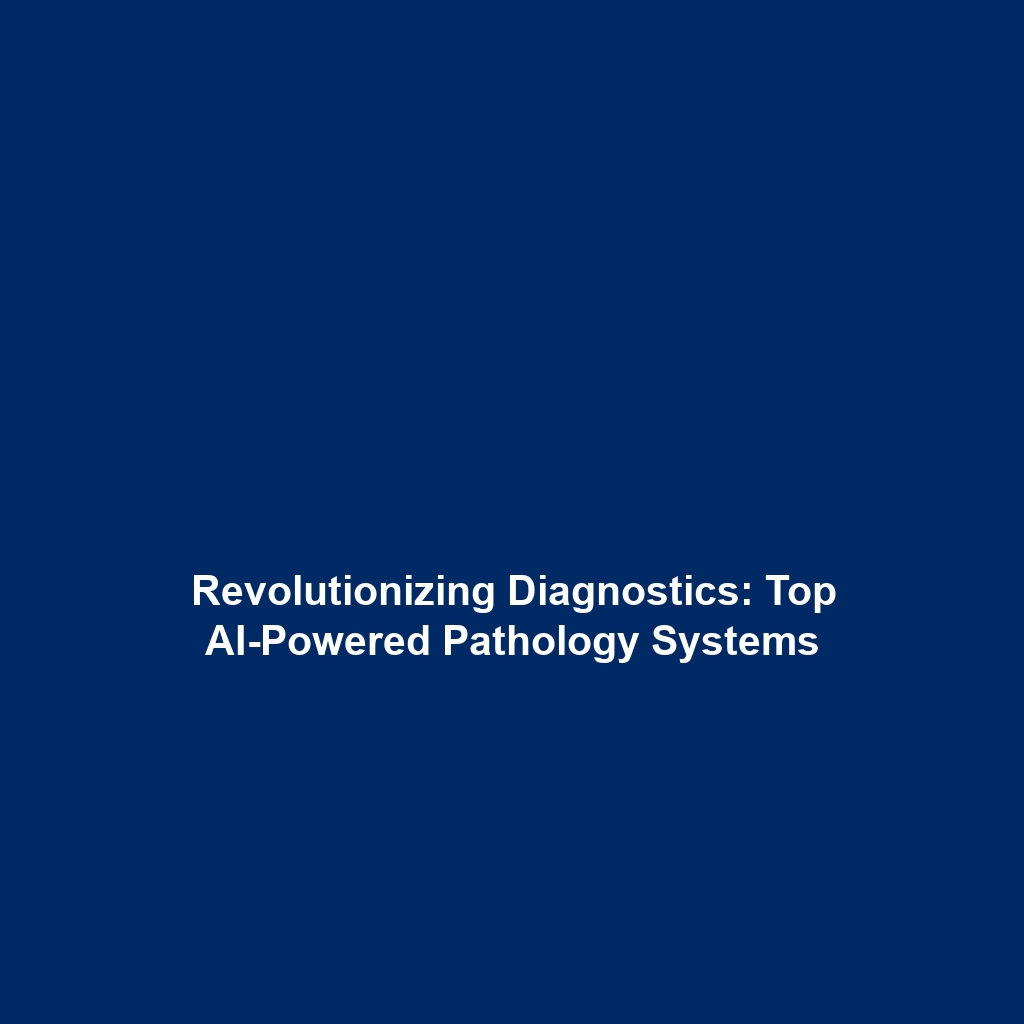Examples of AI-Powered Pathology Systems like Paige.AI in Healthcare
Introduction: In recent years, artificial intelligence (AI) has increasingly transformed healthcare domains, especially pathology. AI-powered pathology systems, exemplified by innovations such as Paige.AI, represent a significant step forward in diagnostic precision and efficiency. These systems leverage advanced machine learning algorithms to analyze medical images, improving the speed and accuracy of pathologists’ evaluations. Understanding the role of AI in healthcare, particularly through such intelligent systems, is crucial as the industry moves towards faster, data-driven decision-making.
Key Concepts
The primary concepts related to AI-powered pathology systems encompass machine learning, image analysis, and automation in diagnostics. Key principles include:
- Machine Learning Algorithms: These algorithms learn from vast datasets of pathology images, identifying patterns that may be missed by human eyes.
- Image Analysis: AI systems employ sophisticated techniques to enhance the visualization of tissue samples, aiding in accurate diagnoses.
- Integration with Clinical Workflows: AI tools like Paige.AI are designed to seamlessly integrate with existing pathology workflows, ensuring minimal disruption to established practices.
Applications and Real-World Uses
AI-powered pathology systems have numerous applications in healthcare, notably in improving diagnostic processes and patient outcomes. Here are significant examples:
- Diagnostic Support: AI systems assist pathologists by providing second opinions, particularly in complex cases.
- Image Classification: They classify pathology images to detect anomalies, such as cancerous cells, aiding in early detection.
- Workflow Optimization: AI tools streamline laboratory workflows, allowing faster turn-around times for patients’ test results.
Current Challenges
Despite the promising capabilities of AI in pathology, several challenges hinder its widespread adoption:
- Data Quality and Availability: High-quality labeled data is essential for training AI models, but it is often limited.
- Regulatory Hurdles: Regulatory approval for AI systems can be complex and time-consuming.
- Integration Issues: Integrating these systems into existing healthcare infrastructures can pose technical challenges.
- Ethical and Privacy Concerns: Ensuring patient privacy while utilizing large datasets raises ethical questions.
Future Research and Innovations
The future of AI-powered pathology systems seems promising, with ongoing research focused on enhancing their capabilities. Innovations include:
- Next-Gen Algorithms: Researchers are developing more sophisticated algorithms that can provide deeper insights from pathology images.
- Personalized Medicine: AI tools might contribute towards personalized treatment plans by analyzing individual patient data more comprehensively.
- Real-Time Diagnostics: Future advancements may allow for real-time analysis and feedback, revolutionizing patient assessment in clinical settings.
Conclusion
AI-powered pathology systems like Paige.AI are reshaping the landscape of diagnostics within healthcare. By enhancing accuracy, efficiency, and patient care, these innovations exemplify the potential of AI in transforming medical practices. As research progresses, stakeholders should remain informed about these technologies and their implications. For further reading on AI in Healthcare, explore topics such as machine learning applications, and the role of AI in disease prevention.

